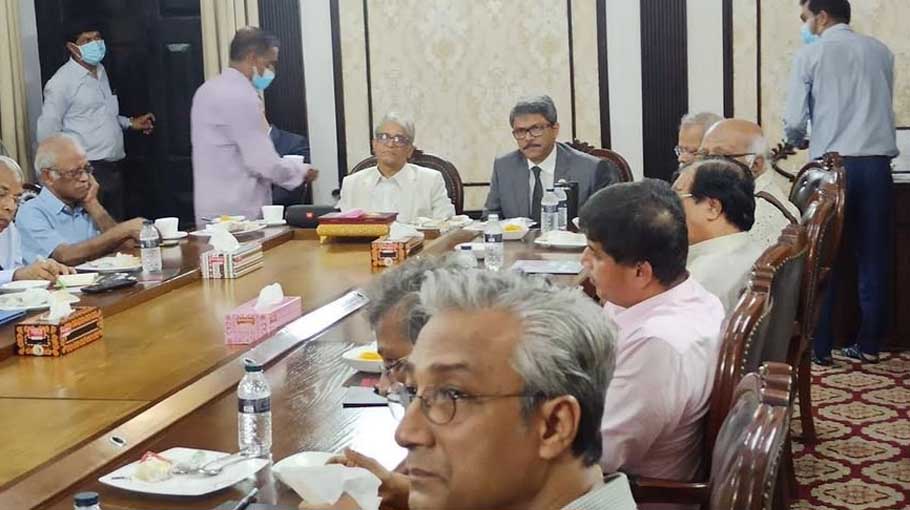Bangladesh diaspora submits statement on ’71 genocide at UNHRC

Stichting Basug (Bangladesh Support group), an organisation of the Bangladeshi diaspora, has issued an statement for United Nation General Assembly reiterating the demand for International recognisation of the 1971 genocide committed against the Bengali nation during Liberation War.
The statement, issued by Stichting Basug with Special Consultative Status of the Economic and Social Council (ECOSOC), will be circulated in the fiftieth session of Human Right Council of the United Nations National Assembly scheduled for June 13 to July 8.
This was revealed Sunday at a discussion held at Dhaka University Vice chancellors' official residence on the campus.
State Minister for Foreign Affairs Shahriar Alam, MP, Dhaka University Vice Chancellor Dr Akhtaruzzaman and Director of Centre for Genocide Studies Prof Imtiaz Ahmed and Bkash Roy Chowdhury of Stichting Basug (Bangladesh Support group) took part in the discussion, among others.
The statement reiterated the demand for International recognisation of the 1971 genocide in a bid to give justice to the victims of the atrocities and bring perpetrators to justice as well as calling upon the UN and other international entities to formally recognise the Bangladesh Genocide of 1971.
Freedom fighter and coordination of 'Amra 71' Mahbub Zaman said after the Liberation War, a number of organisations have been working on genocides which took place in different parts of the country in 1971.
"Some separate activities, including establishing Liberation War museum and Genocide Museum at Khulna as well as forming Ekattorer Ghatak Dalal Nirmul Committee, have been done so far...Now, we want international reorganization of the 1971 genocide," said Mahbub.
"Soon after we noticed that genocide has become an agenda in UN General Assembly, we decided to make it a national issue," he said, adding, "We are trying to engage universities, filmmakers and Bangladeshi communities in this effort".
"It is the start of the beginning towards the journey of achieving UN's reorganization which will definitely take a lot of time as we saw Armenia took hundred years to get UN's reorganization for the genocide," he said.
He said the state minister as well as the foreign ministry has been playing a positive role over the issue. Besides, the foreign ministry has been asked by parliament to try to achieve international recognisation of the 1971 genocide, he added.
DU Pro-VC (Administration) Dr Mohammad Samad, Ekushey Padak winning journalist and columnist Ajay Dasgupta, Director of Centre for Genocide Studies Prof Imtiaz Ahmed, Liberation War Museum Trustee Mofidul Haque, DU Teacher Association (DUTA) General Secretary Professor Nizamul Hoque Bhuiyan, Eminent film director Kawsar Chowdhury, DU economics department professor MM Akash, film maker Tanvir Mokammel and researcher Tawheed R Noor, among others, took part on the occasion.




